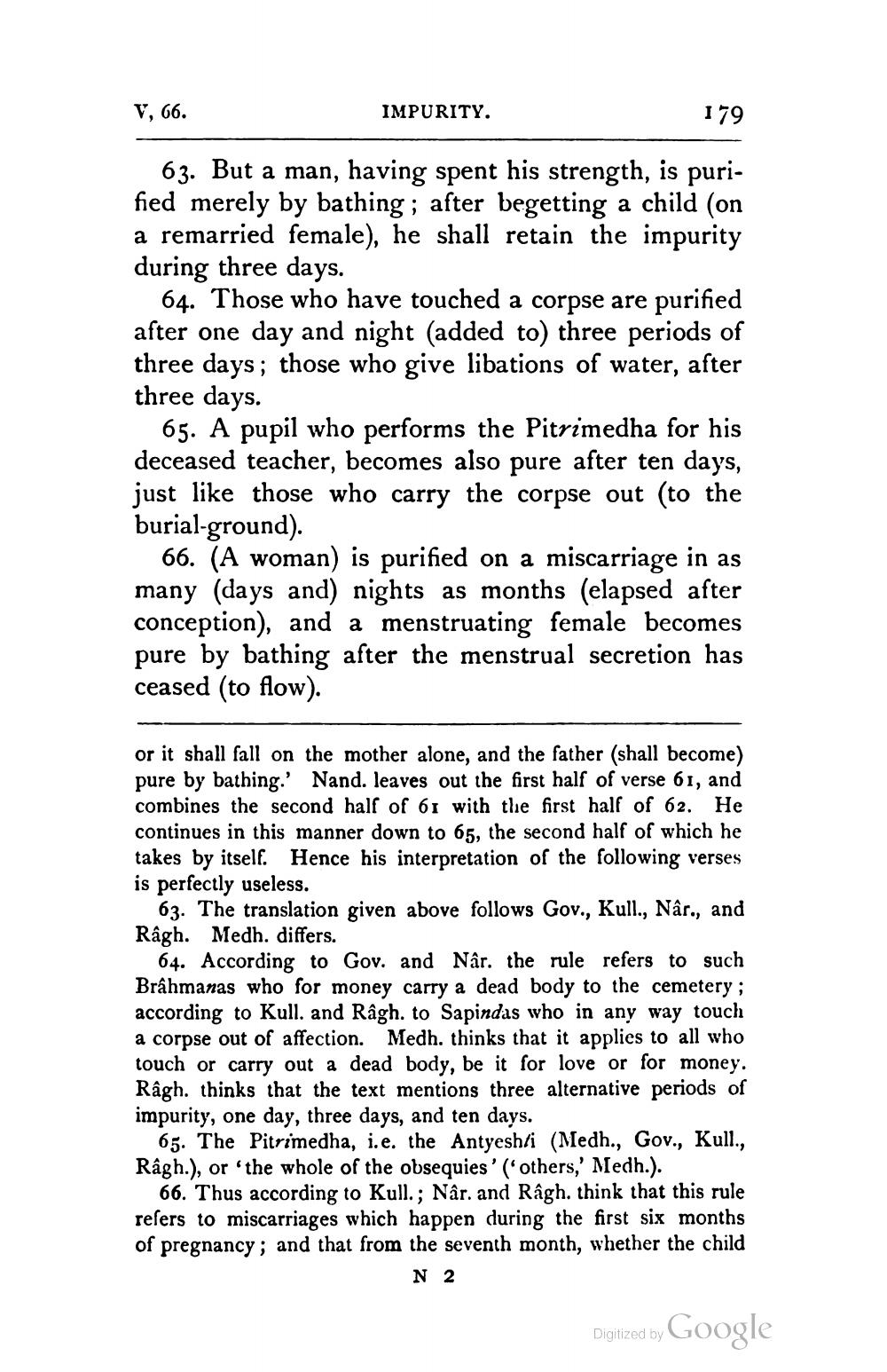________________
V, 66.
IMPURITY.
179
63. But a man, having spent his strength, is purified merely by bathing; after begetting a child (on a remarried female), he shall retain the impurity during three days.
64. Those who have touched a corpse are purified after one day and night (added to) three periods of three days; those who give libations of water, after three days.
65. A pupil who performs the Pitrimedha for his deceased teacher, becomes also pure after ten days, just like those who carry the corpse out (to the burial-ground).
66. (A woman) is purified on a miscarriage in as many (days and) nights as months (elapsed after conception), and a menstruating female becomes pure by bathing after the menstrual secretion has ceased (to flow).
or it shall fall on the mother alone, and the father (shall become) pure by bathing.' Nand. leaves out the first half of verse 61, and combines the second half of 61 with the first half of 62. He continues in this manner down to 65, the second half of which he takes by itself. Hence his interpretation of the following verses is perfectly useless.
63. The translation given above follows Gov., Kull., Nâr., and Râgh. Medh. differs.
64. According to Gov. and Nar. the rule refers to such Brâhmanas who for money carry a dead body to the cemetery; according to Kull. and Râgh. to Sapindas who in any way touch a corpse out of affection. Medh. thinks that it applies to all who touch or carry out a dead body, be it for love or for money. Râgh. thinks that the text mentions three alternative periods of impurity, one day, three days, and ten days.
65. The Pitrimedha, i.e. the Antyeshli (Medh., Gov., Kull., Râgh.), or the whole of the obsequies' (others,' Medh.).
66. Thus according to Kull.; Nâr. and Ragh. think that this rule refers to miscarriages which happen during the first six months of pregnancy; and that from the seventh month, whether the child
N 2
O.
Digitized by Google




